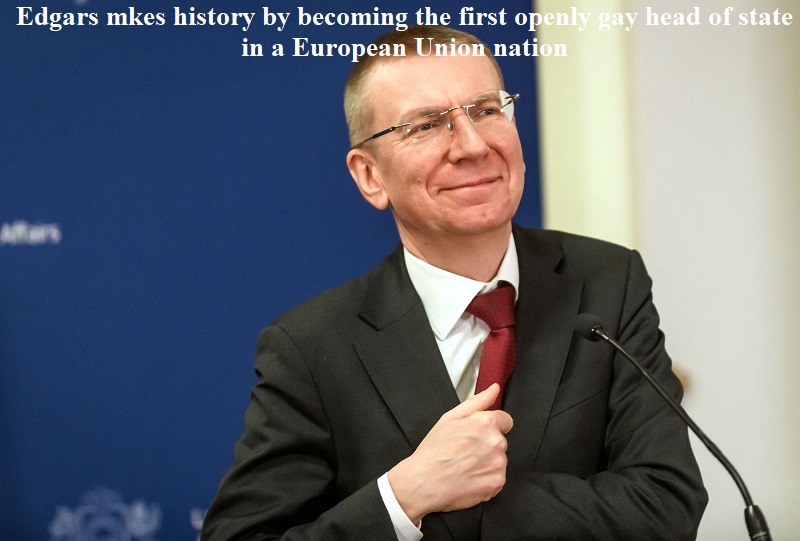
Edgars Rinkevics, who has served as Latvia’s foreign minister for a long time, has created history by becoming the first openly gay head of state in a European Union country. He was inaugurated as Latvia’s president in Riga on Saturday, and he has been a vocal supporter of LGBT rights since publicly coming out in 2014, according to the BBC.
While the president’s role in Latvia is primarily ceremonial, it holds the authority to veto legislation and call for referendums, making it a significant position within the country’s political landscape. This milestone represents a significant advancement for LGBTQ+ representation in Europe.
At the age of 49, Rinkevics has been at the forefront of advocating for LGBT rights in Latvia. Despite same-sex marriage being illegal in the country, the constitutional court recognized same-sex unions last year. Rinkevics’s presidency presents an opportunity to further progress the cause of equality and inclusivity.
During his inauguration speech, Rinkevics expressed his commitment to supporting Ukraine in its ongoing conflict with Russia. He stressed the importance of a well-executed foreign policy and pledged to act swiftly, decisively, and wisely.
Furthermore, Rinkevics addressed social inequalities, acknowledging them as a significant issue that needs to be tackled. He encouraged young Latvians to break through the glass ceiling and highlighted the necessity of a modern, fair, and inclusive society.
Rinkevics succeeds Egils Levits, who served as Latvia’s president for four years. As the new president, Rinkevics will represent Latvia at the upcoming NATO summit in Vilnius, Lithuania.
Latvia, along with Lithuania and Estonia, joined the EU in 2004 following their separation from the collapsing Soviet Union in the early 1990s.
Edgars Rinkevics’s appointment as Latvia’s president signifies a significant milestone as the first openly gay head of state in a European Union nation. His long-standing dedication to advocating for LGBT rights positions him as a powerful advocate for equality and inclusivity both within Latvia and on a broader scale.

Post Your Comments